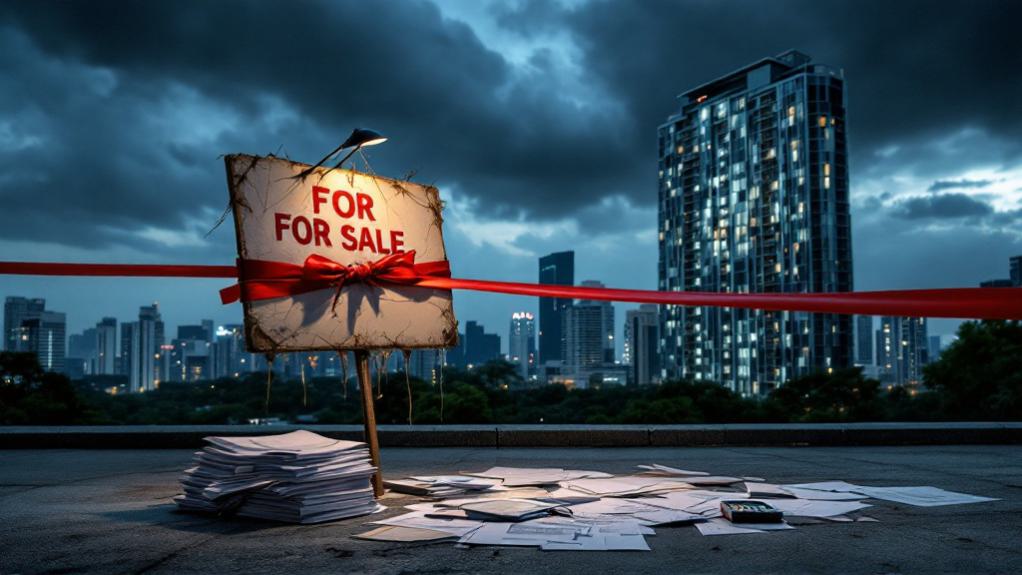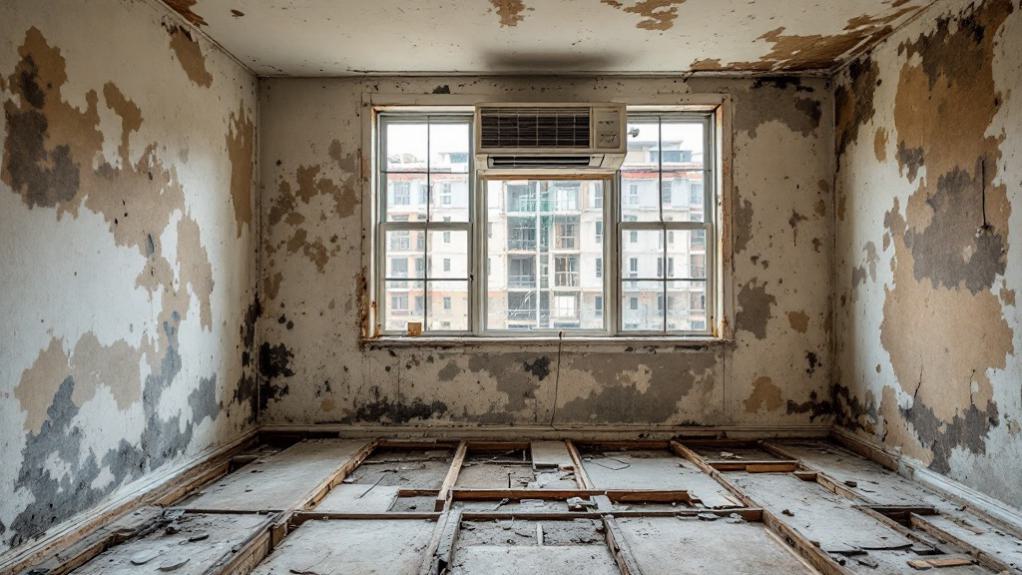Common property buying mistakes in Singapore include proceeding without loan pre-approval, resulting in forfeited option fees and missed opportunities, and underestimating supplementary costs such as stamp duties (3-30%), legal fees ($2,500-$3,000), and renovation expenditures ($30,000-$50,000). Buyers frequently overlook critical location analysis, make emotionally-driven decisions that exceed budgets, neglect professional representation, and misunderstand lease implications, particularly the depreciation of 99-year leasehold properties after 40 years. The following sections examine these pitfalls in greater detail.

While the Singapore property market offers substantial investment opportunities for discerning buyers, numerous potential purchasers continue to commit costly errors that considerably impact their financial outcomes. Proceeding without loan pre-approval represents a significant oversight, potentially resulting in forfeited option fees due to financing failures, missed property opportunities from processing delays, and unrealistic budget expectations when banks offer lower loan amounts than anticipated. The pre-approval process facilitates more expeditious transaction completion, providing a competitive advantage in Singapore’s fast-moving property market.
Financial miscalculations frequently occur when buyers overlook supplementary costs beyond the purchase price, including stamp duties ranging from 3-30%, legal fees between $2,500-$3,000, renovation expenditures averaging $30,000-$50,000 for HDBs, property tax assessments of 4-16% of annual value, and recurring maintenance fees for condominiums of $200-$400 monthly. These cumulative expenses substantially alter the total investment required.
Beyond the purchase price lies a financial minefield of stamp duties, legal fees, renovations, taxes and maintenance costs that drastically reshape your investment reality.
Comprehensive location analysis proves essential, as future developments, MRT proximity, school zone placement, infrastructure projects, and zoning modifications greatly influence property valuations and rental potential. Concurrently, emotional decision-making leads 35% of buyers to exceed budgetary constraints, overlook structural deficiencies, and disregard objective valuation metrics due to aesthetic appeal or fear of market exclusion.
Professional representation remains underutilized despite evidence that 72% of unrepresented purchasers overpay, while agents provide off-market listing access, negotiation expertise generating average 5% savings, issue identification capabilities, and time efficiencies of 30-40 hours throughout the acquisition process. Similarly, foregoing property inspections exposes buyers to substantial risk, with 25% encountering unexpected repair costs ranging from $10,000-$100,000 for structural, pest, electrical, and plumbing issues post-purchase.
Lease terms merit particular scrutiny in Singapore’s property environment, as 99-year leasehold properties experience depreciation after 40 years, whereas freehold properties command 10-15% price premiums. The distinction affects en bloc potential, with lease top-up costs potentially exceeding $100,000 for aging properties, while financial institutions implement stricter loan-to-value ratios for properties with diminishing leases.
Frequently Asked Questions
How Do I Verify a Property Agent’s Credentials in Singapore?
To verify a property agent’s credentials in Singapore, consumers should utilize the Council for Estate Agencies (CEA) Public Register, which allows searching by name, registration number, or contact details.
The verification process includes:
- Confirming the agent’s registration number format (e.g., R123456A)
- Checking active license status
- Reviewing disciplinary records from the past three years
- Examining transaction history for relevant experience in specific property types.
What Are the Hidden Costs Beyond the Property Purchase Price?
Beyond the property purchase price, buyers face numerous overlooked expenses, including conveyancing fees ($1,500-$3,000), caveat registration ($2,000-$3,000), and potential CPF accrued interest (2.5% per annum) that must be refunded when selling.
Additional costs encompass property tax (up to 20% of annual value), maintenance fees for condominiums ($200-$1,000 monthly), refinancing fees ($2,000-$3,000), and renovation expenses (5-10% of property value every 5-10 years).
When Is the Best Time to Buy Property in Singapore?
The ideal timing for property acquisition in Singapore depends on multiple macroeconomic variables, including interest rate trajectories, supply-demand equilibrium, and broader economic indicators. Market analysts typically recommend purchasing during price correction phases following cooling measures, when developers may offer competitive pricing incentives. Additionally, property investment decisions should align with the mid-points of economic cycles, when valuations have normalized post-downturn but before excessive market exuberance materializes, as evidenced by Singapore’s historical 10-15 year cyclical patterns.
How Much Cash Should I Prepare for a Property Purchase?
Prospective property buyers in Singapore should prepare substantial cash reserves for initial outlays.
The minimum cash downpayment ranges from 5% for first-time purchases with bank loans to 25% for subsequent properties.
Additional upfront cash expenses include Buyer’s Stamp Duty (1-6%), legal fees ($2,500-$3,000), valuation fees ($300-$500), and option fees (1-5%).
Prudent buyers maintain a 6-12 month mortgage payment buffer, with total cash requirements potentially reaching $50,000-$200,000+ for a $1 million property.
What Financing Options Exist for Foreigners Buying Singapore Property?
Foreigners purchasing Singapore property face distinct financing parameters, with banks offering mortgages at higher interest rates and lower loan-to-value ratios than local buyers.
Financial institutions typically require valid work visas, minimum six-month income documentation, and stringent credit assessments.
Loan options include fixed-rate terms (1-5 years), floating rates pegged to SORA, or combination packages.
Tenures are capped at 35 years or age 75 at the end of the loan term, with considerations for Additional Buyer’s Stamp Duty.





